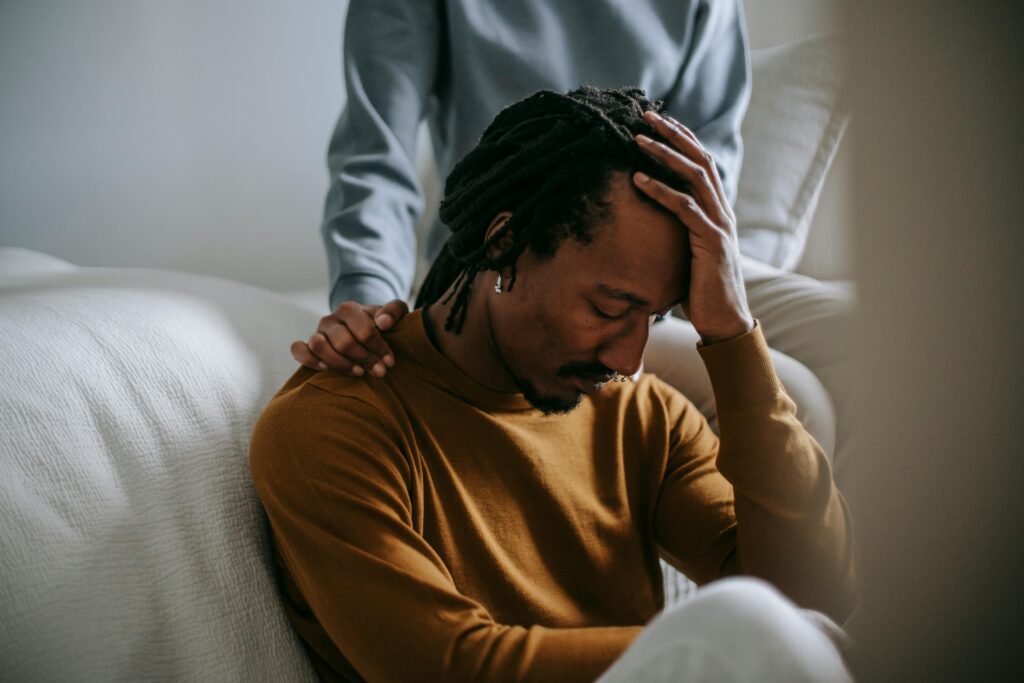Every single one of us will experience grief at some point in our lives. Grief arises from loss—be it the death of a loved one, the end of a relationship, the loss of a job, or even the loss of a cherished dream. While grief is a profoundly personal experience, society often imposes various misconceptions and expectations on how we should grieve. This post seeks to challenge some of the common assumptions people have concerning grief so that people can better appreciate the complexity of the journey.
Misconception 1: Grief Progresses in a Straight Line
Most people expect grief to follow a clear, straight path. However, grief often does not follow any clearly defined trajectory. It is a common belief that grief unfolds in stages, a concept famously articulated by Elisabeth Kübler-Ross: denial, anger, bargaining, depression, and acceptance. Although these phases can provide insight into some aspects of grief, they do not represent every step of the mourning journey.
Mourning is not a straightforward journey and rarely follows a clear path, often bringing emotions back in waves. Throughout a single day, an individual may experience a whirlwind of emotions, ranging from despair and anger to acceptance. It’s common to think you’ve made progress in your grief journey, only to be unexpectedly hit by intense feelings of sadness or anger. This uncertainty can create confusion, resulting in feelings of frustration or inadequacy.
Understanding the Reality: Grieving is not the same for everyone. It is vital to allow ourselves to experience many different emotions without categorizing any as “bad” or “wrong.” It’s important to allow yourself to feel a range of emotions without judging any one of them. Allow yourself to grieve in your way and at your own pace.
Misconception 2: There is a “Right” Way to Grieve
Grieving may be a shared experience, but it is also intensely individual and can take many different forms. Even more than that, however, it is also a socially conditioned experience—the way we grieve is learned, both from observation and direct teaching, and it is also inextricably tied to the identities and communities we inhabit.
The many forms of grief allow for emotion and expression. Some find comfort in showing what they’re going through; others find it challenging to discuss. Grief is much more than sadness and tears. You can laugh and even experience brief moments of joy when you’re in the middle of it, but if you do either, be ready for people around you to understand what you’re doing and why.
Accepting Uniqueness: It is vital to comprehend that sorrow is an innate emotion, and everyone deals with it differently. Mourning is a uniquely personal journey, and there’s no one path to follow; everyone will find their own unmistakable way ahead. Allow yourself the space to mourn in a manner that seems authentic to you.
Misconception 3: Time Heals All Wounds
The term “time heals all wounds” is not universally true. While time indeed factors into the grieving process, it does nothing to lessen the pain or amend the feelings of loss. For some, particular moments—like anniversaries, birthdays, or sudden reminders—can bring back such powerful emotions that it seems their lost one has just departed.
Furthermore, the idea that one must “move on” or “get over” something within a set period of time can induce feelings of shame and inadequacy in people who don’t fit this model and are still attempting to understand what life means without their loved one. Grief can and does change over time but doesn’t always lessen in intensity.
Accepting Continuous Grief: Connecting with those around you is vital as you move through your grief. You can reach out in various ways: to support groups, to friends with whom you can have deep and meaningful conversations, or, if you feel it might help, to a professional who can guide you through this part of your life. Sharing your thoughts and feelings doesn’t make you weak; it helps ease a burden you shouldn’t have to carry alone.
Misconception 4: Grieving Should be a Private Journey
Grief is often seen as a profoundly personal experience, which can create the impression that showing it openly is a vulnerability. This misunderstanding can make people hesitant to reach out for help from their friends, family, or mental health professionals.
In truth, opening up about your grief can play a crucial part in healing. Finding comfort in others who share similar losses can bring comfort and understanding, and engaging in open discussions about grief can strengthen the bonds in our relationships.
Connecting with Others: Don’t hesitate to seek support from those around you as you navigate your grief. Connect with support groups, share your thoughts with friends, or consider contacting a professional for counseling. Our therapists at Awakened Path can help you learn to express your emotions, which can lighten the weight of sorrow and help you realize that you have companionship in your journey.
Misconception 5: Grief is Experienced Only After a Death
The loss of a loved one is undoubtedly one of the deepest triggers for sorrow, but it’s important to recognize that many other situations can stir up similar feelings of loss. Grief can arise from all sorts of life experiences, including divorce, job loss, moving to a new place, or other major changes in life.
Recognizing that grief is not limited to death provides individuals with the power to embrace the full spectrum of their emotions when dealing with all kinds of significant losses. No matter its form, any loss of primary significance should be respected and mourned.
Embracing All Forms of Grief: Permit yourself to feel the sadness of any loss you experience in life, regardless of how insignificant it might appear to others. Every individual’s journey is important, and welcoming the entire range of grief can foster deeper understanding and healing.
Misconception 6: Grief Should Have a Clear Endpoint
Many individuals believe that grief eventually “ends” or reaches a resolution place. This can create a sense of urgency to recover or a worry about being criticized for being sad or grieving after time has passed. Grief is a journey that unfolds over time, with its ups and downs weaving through a person’s life. As time goes on, the sharpness of grief might fade, but the memories and emotions tied to loss often linger.
Embracing the Journey: Understand that grief is not a final stop but a path we walk along. As time goes on, the memory of your loss stays with you, taking on various forms. This doesn’t mean you haven’t healed; it means you’re discovering how to weave that experience into the fabric of your life. At Awakened Path, our therapists would be privileged to accompany you on your grief journey.
Misconception 7: Grief Only Applies to Humans
Grief is commonly misunderstood as something that is only associated with human relationships. Although we generally associate grief with losing a person, the truth is that grief can emerge from the loss of any kind of meaningful connection.
This is particularly true for pet owners. Many experts now recognize the pet bond as a deep and even profound one, making the absence of a pet as heavy as the loss of a human companion. Our bond with animals can be deep and meaningful, and their absence leaves a significant void in our lives.
Validating All Connections: Acknowledging the deep sense of loss felt when a pet or other non-human companion passes away is vital. The emotional bonds we form with animals and other non-humans are real and deserve the same acknowledgment and mourning one gives to any human relationship.
Grief is a unique and intricate experience that unfolds in its own way, free of the influence of societal norms or timetables. Overcoming the misconceptions about grief is an undertaking that also enhances our appreciation of how we relate to ourselves and others as we try to cope with loss.
At Awakened Path Counseling, we encourage individuals to embrace their unique journeys through grief, fostering a welcoming environment for all emotions—be it joy or sorrow. Remember, you’re not alone on this journey; there are people willing to support you, and your feelings are important. Our team at Awakened Path is trained to embrace the complex path of grief and will help you through the process of allowing yourself the compassion to heal in your own time.


